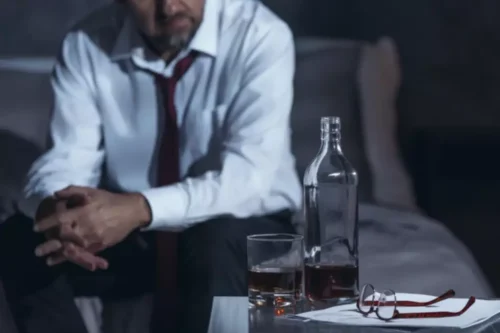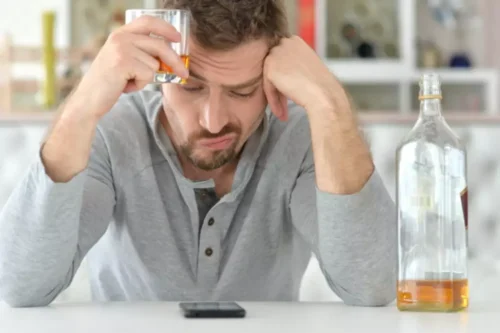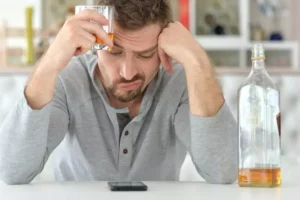Dry January: 8 Things That Can Happen Within Days of Quitting Alcohol
The Rise of Mobile Gaming in the Casino Industry
June 18, 2025The Evolution of Casino Gaming: From Land-Based to Online Platforms
June 19, 2025
Some individuals may still experience occasional sleep disturbances or hangover anxiety, especially if they’re dealing with other stressors or adjusting to new sleep routines. However, the overall trend is typically towards better sleep quality. As the body continues to adjust to life without alcohol, more noticeable improvements in sleep quality begin to emerge. One of the most significant changes during this period is the reduction in night sweats and vivid dreams. The body’s temperature regulation, which was disrupted by alcohol use, starts to normalize, leading to more comfortable sleep. Meditation, in particular, aims to focus the mind and detach it from daily stressors that could hamper sleep quality.

Quit Drinking And Can’t Sleep? What Causes This?
Such problems can persist for some time even after you decide to quit drinking. In fact, difficulty sleeping is one of the most common alcohol withdrawal symptoms and one that causes many to relapse. If lifestyle adjustments don’t improve your sleep during withdrawal, it may be necessary to consult with a healthcare provider. They can prescribe medications to manage withdrawal symptoms and recommend therapies to help reestablish a healthy sleep pattern.

Why Can’t I Sleep After Drinking Alcohol?
While these can be helpful, especially in the months after quitting drinking, the importance of biochemical repair for alcohol withdrawal cannot be overstated. Even though supplements and medications can help tremendously for alcohol withdrawal insomnia, they are not necessary in every case. In other cases, they are necessary, but not sufficient to guarantee that you get the best night’s sleep possible. For instance, many doctors believe cognitive behavioral therapy for insomnia is a fantastic tool.
- We understand this intimately, because we have been helping people with this problem for some time now, and we are quite proud of our achievements.
- If you are drinking to fall asleep most nights, then you could quite easily surpass the maximum amount in a week.
- If you have an alcohol dependence problem, you could be going through withdrawal.
- Several effective treatment options exist for addressing alcohol dependency related to sleep.
Complementary Therapy
Doctors advise that 14 units of alcohol is the maximum you should drink per week. Regularly exceeding this can lead to poor health and risk of serious illness. If you find yourself hiding how much you drink from those closest to you because you don’t want them to know, this could be an indication that something needs to change. When consumed, alcohol is absorbed into the bloodstream through the stomach and small intestine before being metabolized primarily by the liver. The rate at which this occurs varies based on factors such as body weight, age, gender, and overall health.
Can’t Sleep Without Alcohol? End Your Frustration With These Tips.
Individuals who indulge in alcohol before bedtime often experience insomnia symptoms and feel excessively tired the next day. The prevalence of sleep apnea, a serious condition characterized by breathing interruptions during sleep, Halfway house is also increased with alcohol consumption. I find that chronic alcohol use can escalate sleep disorders like insomnia and sleep apnea. Drinking before bed often results in insomnia symptoms, making me excessively tired the following day. Alcohol’s impact unfolds throughout the night as its sedative effects wear off. In the latter part of sleep, I experience increased awakenings and lighter sleep stages, diminishing overall sleep quality.
Paradoxically, some individuals may experience increased sleep disturbances during this period. This is primarily due to alcohol withdrawal symptoms, which can include anxiety, restlessness, and night sweats. Sweating in sleep after drinking is a common issue that may persist or even intensify during the initial days of sobriety.
- Of course, there are other helpful nutrients for alcohol recovery, like organic omega-3 fish oil and N-Acetyl Cysteine.
- Understanding how long does insomnia last after quitting alcohol can be challenging, but sleep disturbances are typical during recovery.
- In the short term, sleep apnoea sufferers feel unrested in the morning.
- More than 70% of those with alcohol use disorder (AUD) also experience alcohol-induced sleep disorders, such as insomnia, according to scientists in a 2020 review.

While these improvements may be subtle, they are the first indicators of the body’s healing process. Alcohol may offer temporary relief from stress, but it exacerbates anxiety and depression in the long run. Quitting alcohol is likely to offer substantial benefits for mental health. Research suggests that abstaining from alcohol helps reduce anxiety and stabilize mood. Over time, this can lead to improved relationships both personally and professionally and an increased capacity to tackle the stresses of professional life.
Seeking Professional Help
These effects hinder recovery and pose barriers to early sobriety. Surviving chronic insomnia following alcohol withdrawal can be tough, with intimidating barriers that undermine one’s journey towards genuine sobriety. Our state-specific resource guides offer a comprehensive overview of drug and alcohol addiction treatment options available in your area. Multiple relaxation methods can be used to help you wind down and fall asleep. These include breathing exercises, visualization exercises and progressive muscle relaxation.
Surprising Things That Happen to Your Body When You Stop Drinking Alcohol

There are various options available to help you address and overcome your sleep difficulties. Consulting a sleep specialist, exploring therapy options, and considering medication as a last resort are three avenues to consider. Alcohol can have a sedative effect, making it easier to fall asleep initially. However, the quality of sleep obtained after consuming alcohol is often compromised. The Recovery Village at Palmer Lake offers comprehensive addiction treatment for drug and alcohol addictions and co-occurring mental health conditions. While some sleep problems during alcohol withdrawal are normal, certain situations require immediate professional attention.
“If you’re a heavy drinker, this is where your liver health starts rebounding,” says Dr. Mosquera. Having a routine that you practice every night signals to your body that it’s time to start winding down. This looks different for everyone, but consider starting about half an hour before bed. Make a cup of herbal tea, light a candle in a relaxing scent, take care of your skin, teeth, and hair, read a book, write in your journal to clear your mind or make a gratitude list. Experiment with different things until you’ve created a routine that feels right for you, and make it a point to practice the routine every night, no matter what. Whether trouble sleeping without alcohol with an expert hypnotherapist or using a self-hypnosis app, the heightened suggestibility of your mind under hypnosis leaves you with positive and lasting behavioural and lifestyle changes.
